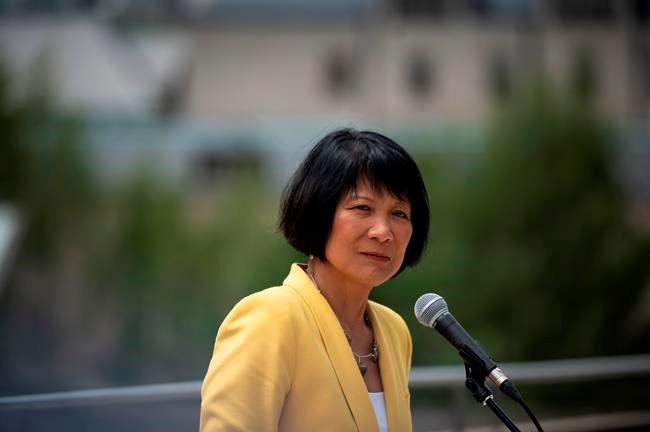Toronto city council began Wednesday to debate a proposed hike to its vacant home tax, a move backed by Mayor Olivia Chow as a way to help battle a housing crunch.聽
Chow says raising the tax by one per cent to three per cent will encourage the transformation of vacant homes into rental units, and otherwise bring in millions of extra dollars to pay for much-needed affordable housing and shelter initiatives.聽
"We're seeing speculators sitting on much needed housing, strangling the market, driving the price of rental housing higher, and making it even less affordable for people," Chow said during Wednesday's city council meeting.聽
"No one should be keeping a home empty during this housing crisis."聽
A staff report up for discussion at city hall says a three-per-cent vacant-home tax rate could bring in an estimated $105 million in 2025, about double the expected 2024 revenue at one per cent, then declining in subsequent years as homes are filled.聽
The report says 2,161 homes were reported vacant by the owners and another 17,437 homes had been deemed vacant by the city as of August after notices went unchallenged. Staff say the number of homes deemed vacant will come down as those homeowners file complaints or exemptions ahead of an April deadline, but the report still estimates about $55 million in projected 2024 revenue.
The tax hike was part of Chow's successful mayoral byelection platform. The city's long-term financial plan, adopted by council last month, also floated it as one of the possible revenue tools to help Toronto tackle a massive projected budget shortfall.聽
The mayor asked city councillors Thursday to support her motion to direct at least $10 million of any additional revenue from the proposed tax hike to a city housing program that provides grants to non-profit housing operators to purchase private market rental housing.聽
The proposed tax hike faced pushback from Coun. Stephen Holyday, who said he feared it was about raising more money for the city and not creating more housing supply. He labelled it as an attempt to bring in another variable tax through "the side door" rather than directly through the property tax.聽
Toronto brought in the vacant home tax in 2021 borrowing from Vancouver's empty home tax, which has also since been used as a model in Ottawa.
A Toronto staff report said the number of vacant Vancouver properties has dropped by 800 units since the tax was implemented in 2017 and $115 million in tax revenue has been put toward affordable housing initiatives. Vancouver's tax has been set at three per cent since 2021.聽
Meanwhile, Ottawa's vacant home tax, unlike Toronto's, requires owners to submit a declaration for each unit in a property of two to six units. Toronto didn't bring in that requirement "due to the complexities to bill and assess the appropriate value to each individual unit," the staff report read.聽
This report by The Canadian Press was first published Oct. 11, 2023.聽
Jordan Omstead, The Canadian Press




